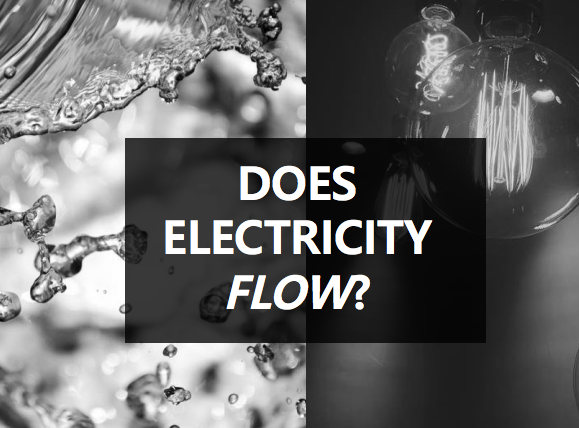As hurricanes pummel the shores of states and island communities, suddenly the primacy of energy in sustaining our lives is brought to the fore. Suddenly the news is filled with phrases like “aging grid” and “crumbling infrastructure”. However, it is possible that as the news cycles turn to other matters, and the communities affected get down to the grueling work of rebuilding, energy may get pushed to the back of mind. Catastrophic events aside, generally the majority of Americans give very little thought to what makes their air conditioners hum, their iPhones charge, and their washing machines churn. And without a sense of scarcity, it is difficult for the public to feel any kind of urgency in relation to their personal conservation efforts. However, that has not always been the case. Sometimes catastrophe can spur change. For example, the attitude towards energy is considerably different in California, a state that experienced being without energy as a result of rolling brown-outs (also called the Western U.S. Energy Crisis of 2000 and 2001). So what makes the difference? How can those who are passionate about energy conservation tip the scale towards greater investment and long-term thinking in the wake of an energy crisis. The key might be, as I have found in my work, language itself. My background is in cognitive behavioral science and linguistics and my expertise in language has come in handy far beyond what I ever could have predicted when I entered the energy field.
The language we use shapes our behaviors, often unconsciously. Take for example- one of the most ubiquitous metaphors we use in the energy industry. It is very common to talk about how energy “flows”. Like water. A simple enough metaphor attempting to make the invisible visible. However, even that simple twist of language can unconsciously sow misconceptions about electricity and ultimately influence our collective behavior towards it.
 The moment we compare electricity to water, we perpetuate the false idea that electricity, like water, can be stored and safely kept in one place, always on demand when we need it. Maintenance of the grid and efficiency are downplayed because, in the public consciousness, there exists giant, ever-accessible reservoirs. We are unused to thinking about electricity as a resource that is constantly tugging and pulling at our infrastructure. A resource that is precariously balanced, minute by minute, by hundreds of personnel working to ensure that when everyone comes home and turns on their TV– the device clicks on without a hitch. When one isn’t used to thinking about the vulnerability of electricity grids, it is really hard to have informed, productive political conversations. The simple language device we use in comparing water and electricity eventually distorts our decision-making processes.
The moment we compare electricity to water, we perpetuate the false idea that electricity, like water, can be stored and safely kept in one place, always on demand when we need it. Maintenance of the grid and efficiency are downplayed because, in the public consciousness, there exists giant, ever-accessible reservoirs. We are unused to thinking about electricity as a resource that is constantly tugging and pulling at our infrastructure. A resource that is precariously balanced, minute by minute, by hundreds of personnel working to ensure that when everyone comes home and turns on their TV– the device clicks on without a hitch. When one isn’t used to thinking about the vulnerability of electricity grids, it is really hard to have informed, productive political conversations. The simple language device we use in comparing water and electricity eventually distorts our decision-making processes.
Another language barrier– one that, again, started out very innocently–is the use of the word “green” for all things “conservation”. The problem with “green” is that it collapses all environmental, health, consumption, and climate-related behaviors into a large bucket of “green” actions we can take. Then we can just pick and choose which ones we like to do without thinking about which could be the most useful for the environment. When I’ve interviewed homeowners about what they are doing to conserve energy, I’ve commonly heard people mention things like “starting to compost” or “keeping bees”. It is easy to fall into a pattern where we take some “green” actions, like purchase recycled paper towels and composting, so we can get away with other not-so-green actions, like setting the air conditioning 5 degrees cooler on a hot day when the grid is straining to keep up. This type of language allows us to create false equivalencies that impact our behaviors.
So during this time when energy is on the mind, we have to alter our focus towards creating an argument that is woven from carefully chosen language that resonates with the target audience’s interests. Even those uninterested in saving the earth or “being green” can come together in favor of lowering costs, increasing our energy independence, and national economic benefits.

Beyond the message, we must carefully consider the messenger. Science-y people revel in being detail oriented, so their messages are likely to focus on data and details. For an audience that isn’t immersed in the science, the details matter less but the messenger matters more. We humans generally respond more effectively to emotional connections formed by hearing about the experiences of those around us than a scientist reviewing numbers and graphs. Data can be so easily dismissed when we talk about a couple degrees warming, but a story of a farmer losing their orange crops due to hurricanes and floods can be visualized and felt in our bodies. Emotional connections are vital to making something invisible, like energy, feel like a tangible issue.
Finally, we need to think about who to reach out to with our message. We don’t have to convince everyone, but we do have to mobilize and change the way we move in the world. Despite the image portrayed by news media, most people do believe in climate change and recognize that there is a pattern happening. However, many of these believers don’t feel particularly empowered to do anything. Many feel distanced from such a long-term issue that they aren’t particularly motivated to take steps towards efficiency. To tackle these issues and to engage the ambivalent people who believe, but don’t particularly care, is a far more reasonable use of time and money than exhausting ourselves by trying to convince full-blown deniers. So, let’s stop that argument and start a conversation with the people that accept that climate change is real, but don’t know what to do. Solar panels, for example, help make electricity visible and visceral. If you can see, touch, or taste something, you can talk about it, and you can alter your interactions with it. Like many complex concepts, electricity has a metaphor problem. By choosing the right words, delivered by the right messenger, to the right audience, we can help shift the scales towards a stronger and more unified national position on conservation and climate change.
